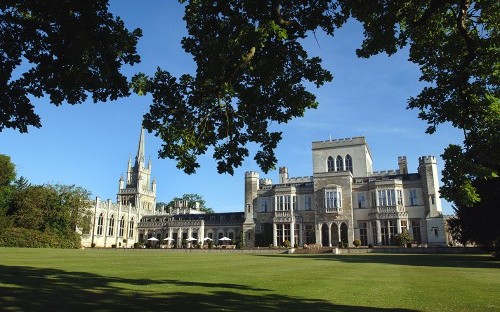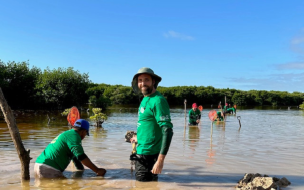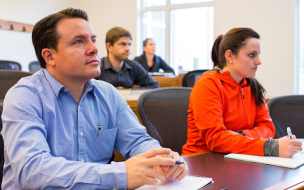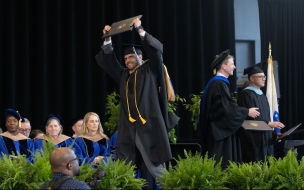For Hassell, 38, business school was an opportunity to “take stock” but, like so many MBA applicants, he had to balance family commitments and finances. Though it’s not the best-known school in the UK, he only applied to Ashridge.
The school, which is just outside London, ticked boxes for its sound reputation, location and price. Total tuition was £29,500, around the same as at nearby Cranfield and Cass, and less than the £45,000 or so at London Business School.
But the deciding factor for Hassell was the teaching. He liked the fact that Ashridge tutors are all working professionals who are out there doing what they're teaching. He was also attracted to the school’s focus on personal development: “I don't want to be the same person I've been for the last 38 years,” he says.
By 1998 Hassell was running a team of 14, with a £25 million annual turnover at Dutch publishing firm VNU. “Ten years on I didn’t really feel I was learning anything new,” he says.
Ashridge’s intimate, intense study groups, set in one of the world’s most noted examples of Gothic Revival architecture, looked like a great way to learn. There are only 23 on the full-time MBA. The class is split into teams of five who work on two-week modules together. Giving formal feedback is a core part of the process: “It's like being in group therapy for a year,” comments Hassell.
Hassell also didn’t want to feel as though he was going back to undergrad and Ashridge, perhaps because it’s known primarily for its executive education programs, attracts people with 10 to 12 years work experience to the full-time MBA.
His class covered 12 nationalities, including a Russian nuclear physicist, a Congolese oil-and-gas executive and a Japanese business planner.
“Ashridge is famous for developing leadership skills, which I think are more important than any technical skills,” adds Hassell. But can leadership skills be taught in the classroom? “If you have a natural disposition towards leadership, this can be finessed into a more powerful tool… but obviously if you have no natural leadership qualities to begin with, then forget it”.
Among leaders he admires, Hassell cites Jack Welch, former CEO of General Electric, and Ricardo Semler, CEO of Brazilian conglomerate Semco. Semler is known for his radical management policies for devolving control to workers, and as the author of “The Seven Day Weekend”.
But Hassell thinks lots of people are impressive for different reasons. He recounts a former boss at ValueClick who didn't come across as an obvious leader – he seemed unassuming and down-to-earth - but underneath Hassell found him “incredibly smart, pragmatic, and always one-step-ahead,” and even “slightly Machiavellian but in a nice sort of way.”
Following his MBA, Hassell won’t be returning to media. He is about to begin a consultancy project for a software company specializing in Radio Frequency Identification, or “tracking things using radio waves.” Hassell will be thinking about how to implement value-added solutions with this new tagging technology: “there's no money in the hardware, it's the software applications that bring in revenue.”
Finally, after a “year out” to think, learn leadership skills and re-direct his career with family in tow, Hassell’s advice to new MBAs is simply to “sleep well and eat well.”
“You’ll need the energy,” he says.
RECAPTHA :
b5
78
33
07







